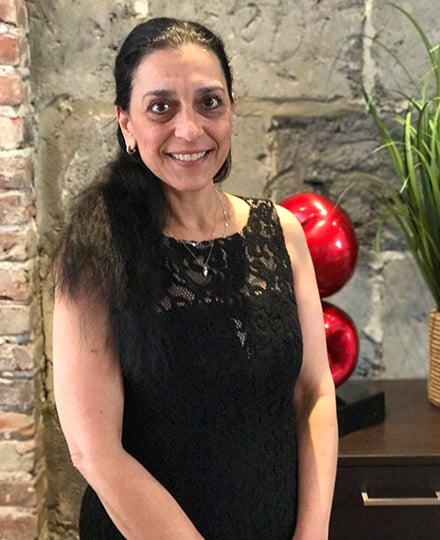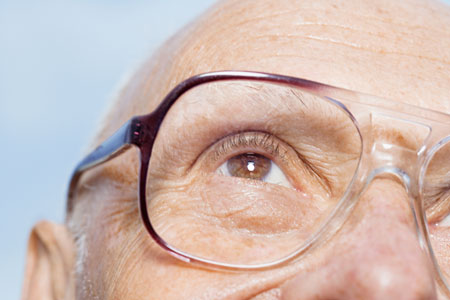The Art of Aging Well
We provide customized hourly and around-the-clock care to older adults so they can live happier, healthier lives at home.
Download by: Maria Licoudis, R.N. & Care Manager
by: Maria Licoudis, R.N. & Care Manager
 Sight is one of the senses that people depend on for information about their environment. Ninety percent of information reaches the brain through the eyes. Age-related changes are serious and develop gradually in the elderly. Visual disorders cause serious problems in every aspect of a senior’s life, and anxiety is usually the predominant symptom. Caregivers, families and friends play a critical role in detecting visual and ocular disease and referring seniors for medical assessment and evaluation. An optometrist, or ophthalmologist may assess for acute eye disease, by taking a history, examining the eye with instruments, testing visual function, assessing the vision subjectively and objectively, and examining the eye externally and internally. Pain and loss of vision are critical ocular symptoms. The presence of systemic illnesses is also important in diagnosis. Illnesses that can cause or contribute to visual and ocular disease include: diabetes, ALS, multiple sclerosis , thyroid disease, autoimmune disorders, lupus, behcet disease, rheumatoid arthritis, Crohn’s disease, uveitis, retinal detachment, cataracts, diabetic retinopathy, hypersensitive retinopathy, and age-related macular degeneration.
Sight is one of the senses that people depend on for information about their environment. Ninety percent of information reaches the brain through the eyes. Age-related changes are serious and develop gradually in the elderly. Visual disorders cause serious problems in every aspect of a senior’s life, and anxiety is usually the predominant symptom. Caregivers, families and friends play a critical role in detecting visual and ocular disease and referring seniors for medical assessment and evaluation. An optometrist, or ophthalmologist may assess for acute eye disease, by taking a history, examining the eye with instruments, testing visual function, assessing the vision subjectively and objectively, and examining the eye externally and internally. Pain and loss of vision are critical ocular symptoms. The presence of systemic illnesses is also important in diagnosis. Illnesses that can cause or contribute to visual and ocular disease include: diabetes, ALS, multiple sclerosis , thyroid disease, autoimmune disorders, lupus, behcet disease, rheumatoid arthritis, Crohn’s disease, uveitis, retinal detachment, cataracts, diabetic retinopathy, hypersensitive retinopathy, and age-related macular degeneration.
Prevention and protection of vision should include being alert to visual danger signs. Some danger signs include:
Never self treat any visual disorders. All eye symptoms or complaints must be addressed by an optometrist or ophthalmologist.
Prevention is extremely important! Seniors should wash eyes and eyelids with warm water and a clean wash cloth in the morning and evening, keep glasses clean and safe, wear sunglasses when outside to prevent glare, as ultraviolet rays can cause eye damage. Never use eye drops unless prescribed by a physician. Do not rub the eyes, as this can introduce bacteria into the eye. reduce eye strain by taking breaks while reading or using the computer. Eat a well-balanced diet full of vitamin A, B, C, beta-carotene, lutein, calcium, and zeaxanthin. Glaucoma and cataracts are also important concerns for the elderly. It can occur due to increased intraocular pressure, which causes visual impairment. It is more prevalent in people over 50 years old. If not corrected with medication (drops) and laser surgery, it can lead to blindness. Cataracts make the normally clear, transparent crystalline lens become opaque, or white in color. It usually occurs in people over 70 years old, and surgical treatment is the only treatment.
As caregivers, we must always remember to take extra precautions with people who are blind or have decreased vision. Always keep them oriented, guide them around their living space to familiarize them to details in the room, and walk with them and have them touch objects (chairs, table, fridge, couch, bathrooms, phone). Always speak to the person before approaching them and let them know what to expect next by touching their hands, preparing them for ADLs, and always telling them before touching them. Do not rush or make the person anxious. Appeal to their sense of hearing or smell (music, flowers, cooking smells). Always introduce them to new people and new environments, open doors for them, guide them, never speak up from behind, and offer them your arm when ambulating as they have their own sense of balance and direction. As always, maintain respect, comfort, and dignity to improve their quality of life.
Note: This information is for informative purposes only. Always check with a medical professional.

Get Started With a Free Consult